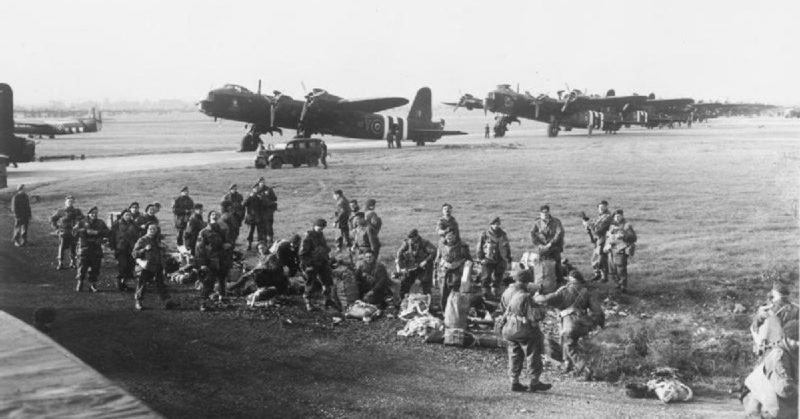Ken Cranefield served in the No 233 Squadron of the RAF during World War II. He dropped supplies to the 1st Airborne Division at Arnhem in spite of serious wounds of his own. For his bravery and valor, he was awarded the Distinguished Flying Cross.
Operation Market Garden was a campaign by the Allies to capture a series of vital bridges in the Netherlands. It started on September 17, 1944. Cranefield piloted one of 22 Dakota transport planes that towed gliders carrying troops from the King’s Own Scottish Borderers and the Border Regiment. There wasn’t much resistance put up by the enemy, and only one glider failed to land safely at Landing Zone “S”.
But the Germans brought in reinforcements and increased their anti-aircraft capabilities. It was critical that the ground troops receive supplies at the same time the enemy was making it much more difficult to fly in and deliver those supplies.
On the morning of September 23, Cranefield flew his Dakota along with 16 other pilots on a mission to drop supplies to the troops on the front line. As they approached the landing zone, they encountered heavy anti-aircraft fire. Cranefield could hear the bullets hitting down the length of the plane.
His wireless operator noticed the starboard wing had burst into flames. A large hole had been blown in the wing, but Cranefield continued on the mission.
Just before reaching the drop zone, they were targeted by the enemy anti-aircraft guns again. This time Cranefield sustained serious wounds in his knee and thigh. He refused treatment and continued flying until he successfully dropped the supplies.
Only at that point did he allow the second pilot to take over and fly the plane back to the base. Another member of the crew tended to his wounded leg, using a flex boom from a microphone as a tourniquet.
While recovering in the hospital, he met the RAF nursing sister that would eventually become his wife.
The citation for his DFC stated that he was “a courageous and resolute captain who set a very fine example.”
Due to the seriousness of his injuries, he was not able to resume flying.
Cranefield was born as Knivett Garton Cranefield on May 2, 1922, in Ealing. He enlisted in the RAF in February 1941 and trained as a pilot under a joint US/UK Training Scheme.
He completed his training in Britain on the Wellington bomber and ferried one to North Africa. While on the way, he was intercepted by three German fighters, but was able to get away from them.
He returned to Britain as the RAF was building up their transport force. They were preparing for the invasion in Normandy, so Cranefield pivoted to the Dakota transport plane.
In the time after the D-Day invasion, he made many trips to Normandy with loads of supplies and men. One trip saw him transporting one ton of newspapers.
Whenever he flew back from Normandy, the plane was filled with injured soldiers headed for hospitals in England. As the Allies made progress in Europe, he landed at captured German airfields and eventually in Brussels which was made a major airhead.
After getting injured on the flight to Arnhem, he was hospitalized for weeks and received treatments for ten years. Since he could no longer fly in the RAF, he left as a warrant officer in 1946 and began a new career in Civil Service. He eventually took on senior appointments in the Department of Employment.
He returned to Arnhem in 2014 to attend a service in honor of the 70th anniversary of the battle where he was welcomed warmly by the Dutch people who recognized his medals and thanked him, The Telegraph reported.
Ken Cranefield died at the age of 94 on the anniversary of his first sortie to Arnhem. His wife, Marjorie Douglas, preceded him in death in July last year. He is survived by his two daughters.
